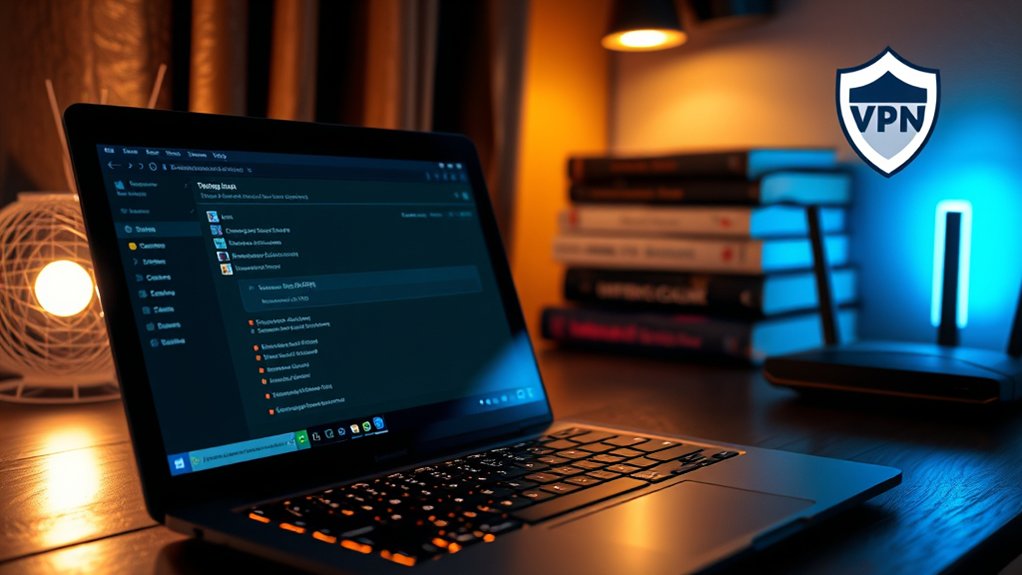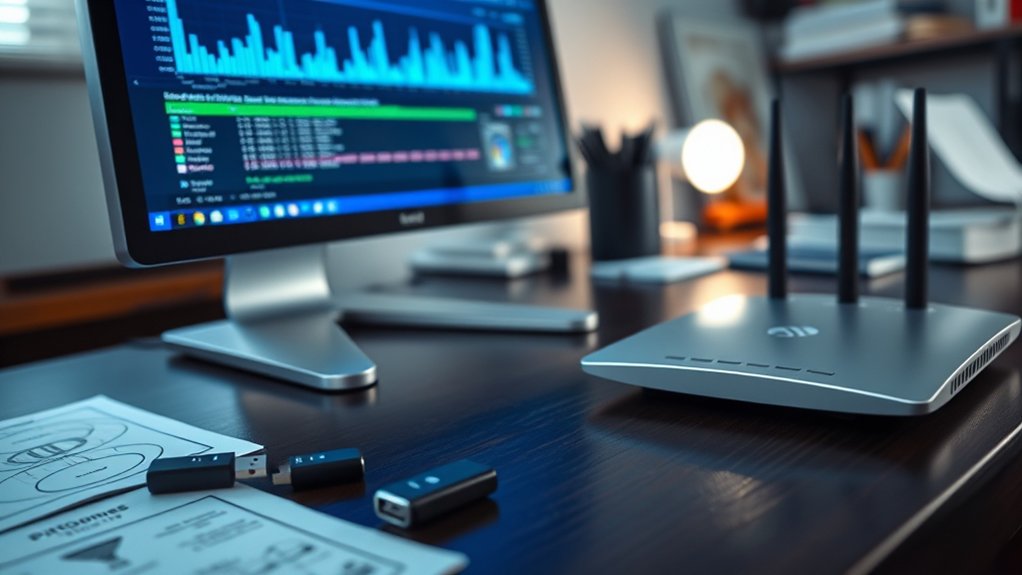Torrenting safely involves several essential precautions. Users should employ a reliable VPN to mask their IP address and encrypt data, thereby preventing ISP monitoring. It is vital to select reputable torrent clients, such as qBittorrent or Deluge, which regularly release updates to mitigate vulnerabilities. Users must scrutinize torrents for authenticity, avoiding suspicious file types and considering community feedback. Moreover, individuals should remain informed about copyright regulations to avoid legal consequences. Adhering to these guidelines can improve security in torrenting activities.

In spite of the growing popularity of torrenting as a method for file sharing, individuals engaged in this practice must navigate a terrain fraught with risks and legal ramifications. Torrents utilize decentralized peer-to-peer networks to share files, which inherently increases exposure to security threats such as malware and data breaches. A study conducted by cybersecurity firms revealed that over 40% of torrent users report encountering malware, signifying a notable danger. Furthermore, legal concerns loom large, particularly when downloading copyrighted material without permission. Ignorance of copyright laws can lead to significant penalties, including fines and potential legal action, varying widely across jurisdictions.
To mitigate these risks, individuals are encouraged to adopt crucial tools and practices for safer torrenting. A trustworthy virtual private network (VPN) is undoubtedly one of the most critical components; a VPN can mask the user’s IP address while encrypting data traffic, consequently thwarting monitoring by Internet Service Providers (ISPs). Encryption protects user data from being monitored, enhancing overall safety while torrenting. Choosing a VPN with a strong no-logs policy is essential for maintaining user privacy and security.
Experts recommend selecting VPNs that boast strong encryption standards and a strict no-logs policy to improve privacy. The inclusion of a kill switch feature is likewise advisable, as it prevents data leaks if the connection drops unexpectedly. Moreover, the choice of torrent client is significant in maintaining security. Reputable clients such as qBittorrent and Deluge are noted for their safety features and frequent updates that protect against vulnerabilities.
Users should furthermore be wary of fake torrents and need to inspect files meticulously for authenticity, avoiding those with dubious extensions like .exe. Consulting user reviews and community feedback on torrent sites assists in identifying trustworthy torrents from potentially harmful ones.
Frequently Asked Questions
Are Torrents Legal in My Country?
The legality of torrents varies greatly by country. In Poland and Spain, personal use is typically tolerated, though distribution remains illegal.
Conversely, countries like Australia and China enforce strict penalties for torrenting copyrighted materials.
Legal frameworks fluctuate, influencing user behavior; for instance, Canada offers substantial protections for personal copying.
Consequently, individuals must thoroughly understand local laws to navigate the complex environment surrounding torrenting, as legal repercussions can arise from misinterpretation or oversight.
How Do I Find Reliable Torrent Sites?
To locate reliable torrent sites, individuals should prioritize those with high reputation and verified torrents. Community feedback, user reviews, and active moderation greatly improve safety.
For instance, platforms like Torlock and The Pirate Bay frequently provide verified content. Moreover, sufficient library size and variety contribute to user satisfaction.
Legal considerations remain paramount; users must understand copyright laws in their region. Employing tools such as VPNs and antivirus software mitigates risks associated with torrenting.
Can I Get Caught While Torrenting?
Torrenting carries inherent risks of detection.
Internet Service Providers (ISPs) can monitor users, potentially leading to throttling or account termination.
Copyright holders actively track torrents, employing methods such as IP address tracking and honeypot torrents.
Legal consequences can include fines, lawsuits, and, in extreme cases, criminal charges.
Furthermore, the visibility of one’s IP address in torrent swarms offers a pathway for identification by authorities, emphasizing the dangers of illicit downloading practices.
What if a Torrent File Is Corrupt?
When a torrent file is suspected to be corrupt, several steps can be taken for resolution.
Users should consider re-downloading the file using a different torrent client, as this may resolve underlying issues.
According to experts, switching clients and evaluating network configurations can substantially improve data integrity.
Regularly monitoring file health and utilizing built-in recheck features in torrent software can likewise help identify and rectify corruptions effectively.
How Do I Choose the Right Torrent Client?
Selecting the appropriate torrent client necessitates thorough reflection on several factors.
Key aspects include download speed, security features, and user interface. For instance, clients like qBittorrent and Deluge excel in speed and customization options.
Security is improved through built-in encryption and IP hiding capabilities.
Additionally, the software’s compatibility across various platforms, coupled with a community support network, can greatly influence user experience.
Assessing these elements aids in making informed decisions for ideal torrenting.









